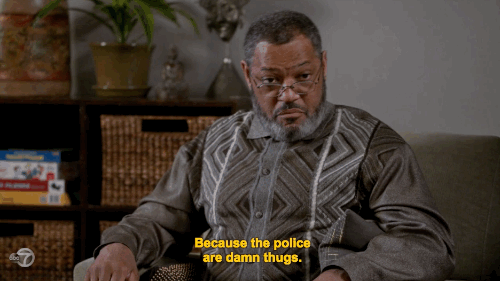The Orwellian Future of the Crimes Bill 2016
By Charlie Tetiyevsky
I went into David Shoebridge’s office nervous, excited, and, I figured, rusty at interviewing.
I assumed that it would be difficult to get information other than party lines from Shoebridge, like the American politicians that I’ve encountered and spoken to over the years. But fortunately, or perhaps unfortunately if I was trying not to be unsettled about the political motives roiling beneath Parliament’s goings on, Shoebridge transitioned quicker to an honest attitude than I would have expected. His was an air of resigned determination, the otherwise barely perceptible internal struggle revealing itself in his animated speech.
I wanted to talk to Shoebridge about being the face of the growing opposition among young and marginalized people against NSW’s current social, executive, and economic policies. I learned some very scary and pressing things about the upcoming Parliament session.
Legislators, Shoebridge says, “have given notice of a fresh set of laws that they want passed when Parliament returns in May.” The bills, known as Serious Crime Prevention Orders Bill 2016 and Criminal Legislation Amendment (Organised Crime and Public Safety) Bill 2016, were introduced by Deputy Premier and Minister for Justice and Police (and the arts—who lumped that together? Definitely explains where our arts funding has gone) Troy Grant on March 22 and have only just started to get public attention this week.

One of the bills, Shoebridge explains, deals “with future crime […] where they haven’t got evidence beyond reasonable doubt that someone has committed a serious criminal offense or where they’ve prosecuted someone and the defendant has been acquitted.” In such a situation, Shoebridge explains, people like Troy “still want to be able to apply a court to say, well, they’ve got evidence including secret criminal intelligence evidence that they won’t show you that suggests [these people] may commit a serious crime in the future or be involved with—they don’t have to have any criminal intent—be involved with a serious criminal matter in the future. They can get orders restricting your civil liberties, preventing you [from going] places, preventing you from engaging in conduct, not on the basis of crimes you’ve committed in the past, but on a speculative basis about crimes you may commit in the future. It’s kind of ‘Minority Report’ future crime, which looked like science fiction until [now when] we have a deeply right-wing state government in NSW.”
To be clear, the bill suggests that such orders be allowed to extend for up to five years.
Five years of physical and social control, five years of emotional abuse that can, the bill says, be legitimised through the use of otherwise inadmissible things like heresay and past acquittals. The bill is purportedly to fight “organised crime,” but such boundless legislation offers infinite options for public servants with ulterior motives and misguided beliefs. Under this system, if you were mistakenly associated with a bikie gang (say you were an unaffiliated tattoo artist or something), tried, and let off because you were found innocent, that could still be used against you to limit your civil liberties in the name of “public safety” for up to five years.

By court order, the whole judicial system and the presumption of innocence without solid proof could just be overwritten. The very basis of a democratic and just court system would be destroyed in a single bill, the sort of thing that has been bound to happen when you consider that Australia is, Shoebridge explains, “in a tiny minority of jurisdictions anywhere in the developed world that doesn’t have a bill of rights. […] Every other developed jurisdiction you can think of [has] well-established constitutional rights that a citizen can refer to when they’re being monstered by their government. But not in Australia. Why not? Because politicians like Bob Carr, Tony Abbott, Bill Shorten, Paul Keating, have all come out loudly and said, ‘It’s offensive to give people rights, statutory or constitutional rights in the form of a bill of rights, because that’s hand-in-power taking power from the Parliament and giving it to the courts.’ Most people who are concerned about it and believe a Bill of Rights is important actually think it’s about constraining the abuses that Parliamentarians can engage [in] with citizens. […] It’s not surprising that politicians don’t want to constrain their abilities.”
To those who believe there are safeguards against these sorts of bills being passed, I have bad news: Shoebridge, who has been part of the Legislative Review Committee for four years, revealed that the committee (which is tasked with confronting legislation that is construed as being against civil liberties) “would meet once per sitting week for less than five minutes. It’s government-dominated,” he says, “[and] the government chair and the government members are offended if you have the temerity to actually interfere with their lunch time and actually want to debate something or discuss something. You move an amendment to a recommendation to suggest that maybe a piece of legislation is grossly offensive to our human rights and they refuse to debate on it, they will just vote it down without discussion. […] I think there’s only been one occasion in its entire history, for well over a decade now, where a recommendation of the legislative review committee has ended up amending a bill. And that was an occasion where there was a proposal to increase the fines and penalties for [the violation of] some environmental protection laws[, which] the coalition of Labour thought that was a terrible infringement on someone’s rights. But bail laws, jailing people on suspicion, watering down your rights with police, massively increasing police powers—not once has the LRC had the slightest impact on any of that. That’s the only machinery in place, it’s woefully inadequate—in fact, it’s embarrassing.”
Shoebridge suggests that the LRC be abolished and that a Bill of Rights be established so that when legislation violates those rights it will simply not enter into effect.
“You have the rights that Parliament chooses to give you […] there are a series of legal academics who believe that the NSW Parliament and the UK Parliament would, if they chose to, have the power to pass a law to say that all blue-eyed babies should be killed at birth. And really there would be nothing preventing us [from] doing that. Well, apart from a civil disturbance.”
But the government shouldn’t worry about those either, as Shoebridge makes the power imbalances in Australian civil life clear: “Not satisfied giving police powers to break up protests, which is what they got through Parliament last month, they now want to give the police powers to prevent people from even going to a protest in the first place. If they have some evidence that someone might be going to a protest in the future, to an event in the future—they want to be able to issue an order just by the police inspector and [court] preventing you from going a place in the future. So that, where is it going? It’s going to a pretty ugly place, and the police want to be able to not only judge and prosecute you on the basis of your past conduct, they want to be judging and prosecuting you on the basis of what they think you might do in the future.”
An ugly place, indeed.
Heaps Gay has started a Change.or petition to Prevent the Passing of the NSW Serious Crimes Prevention Order 2016. Sign it now.


5 thoughts on “The Orwellian Future of the Crimes Bill 2016”